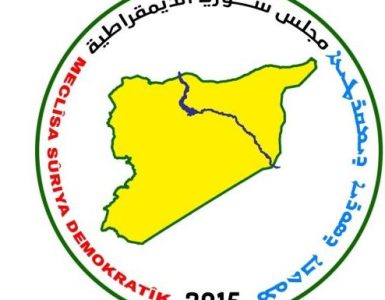By Rody Hasan
As Syria grapples with systemic collapse, the failures of its centralized governance model have become undeniable. The nation’s descent into catastrophe stems not from the individuals who have ruled Damascus, but from the structural foundations of power. The current structure concentrates authority, resources, and political identity exclusively in Damascus. Meanwhile, it systematically marginalizes other community components across the nation. Superficial leadership changes cannot remedy this deep-rooted crisis. What Syria requires is fundamental restructuring. Decentralization is not merely a bureaucratic adjustment but a philosophical, political, and societal imperative for meaningful renewal.
The Case for Decentralization
The Ba’athist regime’s nationalist ideology constructed a homogenized state—one language, one dominant ethnicity, a singular identity. It demanded unquestioning allegiance to centralized authority as a fundamental doctrine. This framework distorted the state’s purpose, transforming it from a public institution into an instrument of control. Non-Arab communities faced enforced marginalization, local languages were suppressed, and regional self-determination was denied. Even within Arab society, diversity was erased as Damascus evolved into an exclusionary power center governing with what amounted to internal colonialism. In this context, decentralization represents more than administrative reform. It constitutes a direct rejection of this oppressive legacy. It serves as a necessary corrective to historical injustices. Most fundamentally, it offers a path to rebalance power between national institutions and local communities. Ultimately, it enables the redefinition of the very relationship between state and society.
Decentralization as Grassroots Democracy
Syria’s path forward demands a redefinition of democracy—not as periodic elections but as lived self-governance. True decentralization isn’t about the state graciously devolving limited powers; it requires dismantling the state’s monopoly on authority and rebuilding governance from local communities to national institutions. It means decisions are made where their consequences are felt, with people setting priorities through their own representative bodies rather than distant elites. This is no longer theoretical. Despite facing formidable challenges, the Autonomous Administration of North and East Syria (AANES) provides functional, on-the-ground examples of decentralized governance operating successfully in multiple Syrian regions.
Also: Syrian Women Strive Continuously Against Violence and Oppression
Global Lessons in Decentralization: Models for Syria
Switzerland stands as a historic testament to how deep federal decentralization can sustain unity in a multilingual, multicultural nation. Each canton exercises substantial autonomy, with local communities directly shaping decisions through popular referendums. Spain, despite ongoing nationalist tensions, has developed an autonomous governance model granting regions like Catalonia and the Basque Country significant self-rule—temporarily mitigating conflict. In Iraq, the federal system demonstrates that recognizing ethnic and sectarian pluralism—when coupled with functional institutions—can act as a bulwark against renewed dictatorship. These cases reveal decentralization not as a threat to unity, but as its safeguard: by fostering participation and belonging, it institutionalizes inclusive participation, replacing centralized coercion with subsidiarity-based ownership.
Beyond Centralization: The Case for Adaptive Pluralism in Syria
For Syria, reconstruction cannot be divorced from reimagining the state itself. Fantasies of “returning to pre-2011” ignore the shift in public consciousness and the relationship between citizens and power. The youth who led the revolution, the women who bore war’s heaviest burdens, and the communities that built self-governing institutions amid state collapse will no longer submit to a distant center dictating their fates. A decentralized model offers regions the space to express their distinctiveness and self-organize according to local needs—without secession. This demands a flexible, participatory system that institutionalizes difference, redistributes power and resources, and rebuilds a state emerging from society rather than imposed upon it.
Also: Rebuilding Syria’s Political Process and Defining the SDC’s Role is Crucial
Beyond Damascus: Building a Decentralized Syria
Syria’s crisis demands more than a “political solution”—it requires structural transformation of the state’s relationship with its citizens. We must abandon the failed model of the centralized nation-state. In its place, we must build a decentralized democratic society—steered by elected councils, where decisions emerge through dialogue and consensus rather than imposition. Decentralization is not mere constitutional tinkering but a transformation of consciousness—from a led populace to a self-determining society, from an authoritarian state to popular sovereignty. This historical moment may be Syria’s last chance to claim what it has long been denied: a homeland that embraces all its people, not a prison for those who dissent from centralized authority.




